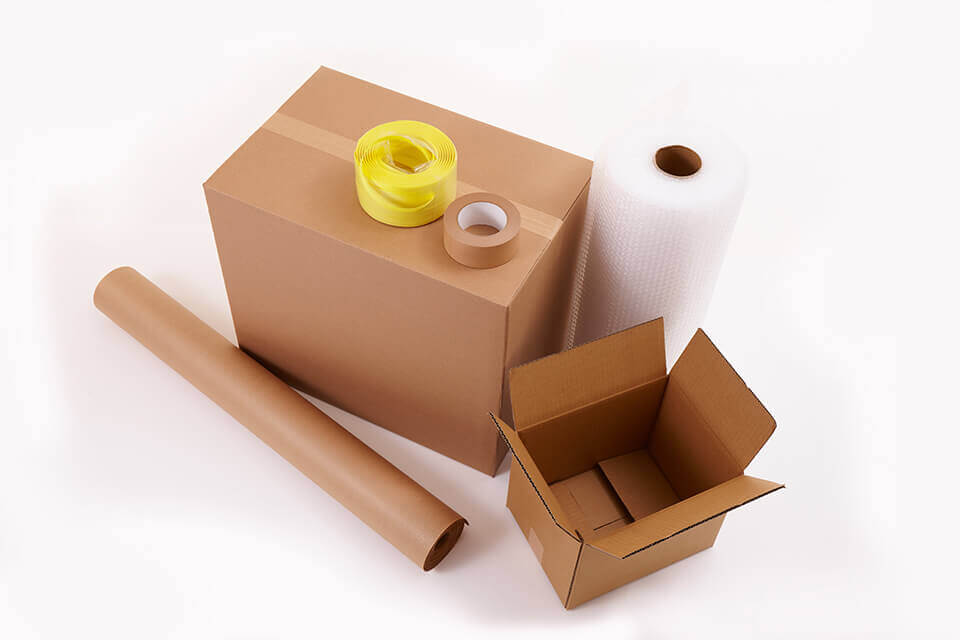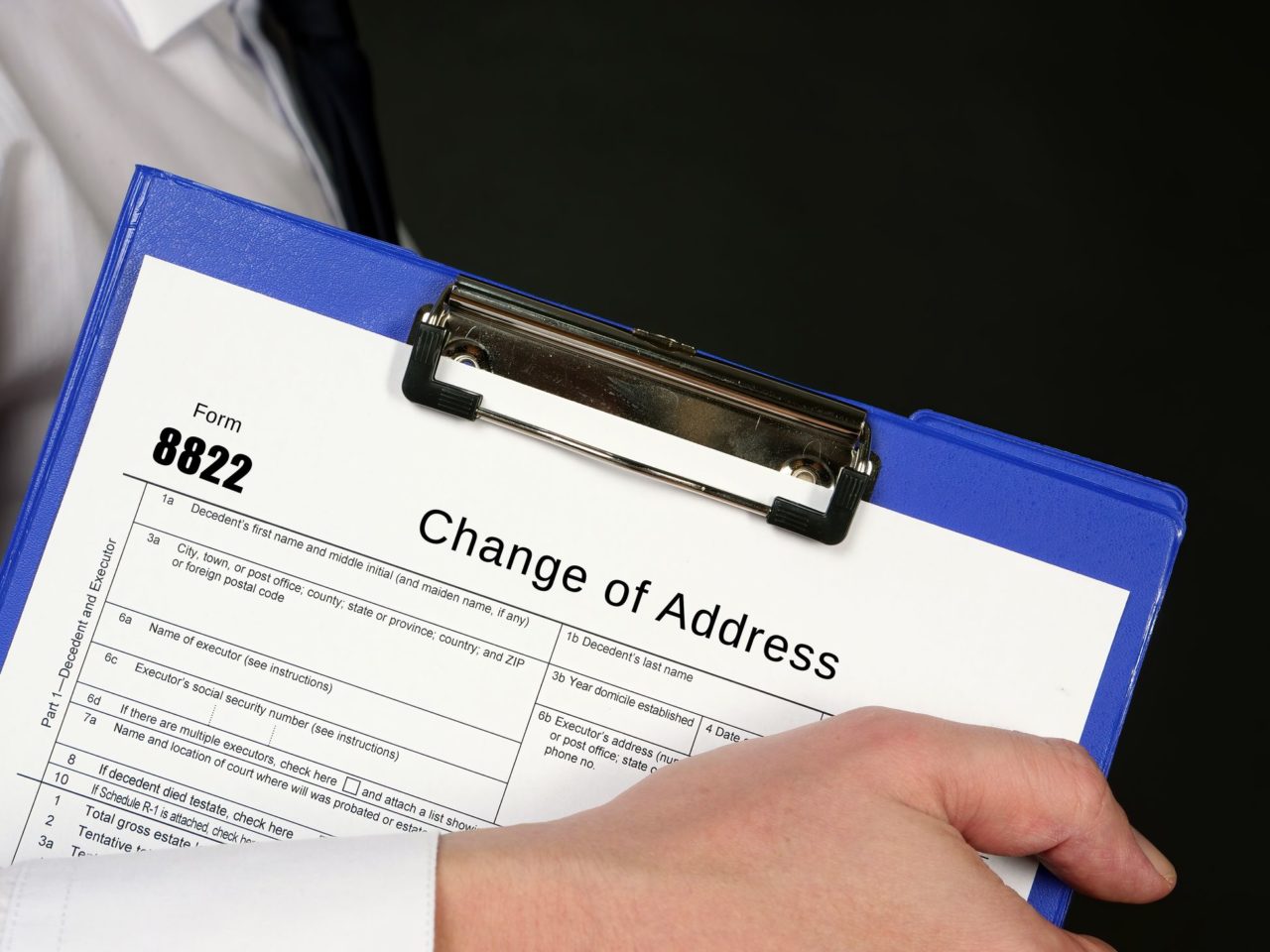

Many of us wonder what is the first thing to do when moving because we never know where to start. That’s where the almighty and powerful moving to-do list comes into play. Being organized is a pathway to getting things right, and a checklist is integral in that.
How Do You Prepare to Move to a New House Anyway?
The relocation process can be a vicious cycle. Forgetting to do one thing can result in a whole other problem we’re usually not aware of. It’s essential to nip something in the bud to avoid this kind of fate because otherwise, stress will get you.
So, to start the move right – organize. Prepare by:
- Creating a household inventory checklist,
- Making piles of what to keep and not,
- Finding out who to notify about relocation,
- Gathering packaging materials,
- Getting into the proper mindset to move (by eliminating stressors, for example.)
A moving packing list will help with these and many other things. We’ll go into detail for most of the points because, as with any step, there’s a method to the madness. Bear in mind that most of them should be done a few weeks before relocation, around four to eight weeks prior, to be precise. Doing everything on the day of or minus a couple of days is already too late.
Creating a Moving List Is an Essential Part of Relocating to a New Home
It’s important to have a list of things to do when moving into a new house. Even if you don’t identify as an organized person, making a checklist is still one of the best things to do before you move.
The most beautiful part is that the checklist can look however you want. Do you want to draw silly pictures as bullet points? Go for it. Is it easier to put it on a piece of paper with colorful pens? You should absolutely do that.
The main question you may have is, “is there a checklist for moving that works universally?” and the answer to that is both yes and no. Adding the essential points is the same for every move because relocation is pretty universal. However, the way you make those points look is pretty much your choice.
 Use every tool necessary to make the checklist easier to follow and understand
Use every tool necessary to make the checklist easier to follow and understand
A Perfect Moving to Do List Has Decluttering On It
There’s no complete inventory checklist if it doesn’t have the task of decluttering. You know, that thing Marie Kondo talks about all the time. The thing is, her methods aren’t revolutionary – she just has a good point. Now, this isn’t a Marie Kondo criticizing paragraph; we just want to emphasize that decluttering is possible whichever methods people resort to.
This specific process requires so much attention because it’s the most challenging thing to do. Decluttering means getting rid of stuff laying around the house, often some you for sure forgot was even there. However, it’s a part of relocation essentials because there’s no way you’re actually planning on bringing all that stuff to the new home.
Cleaning out unwanted and damaged items will make the relocation day easier because there will be less stuff to carry. That will bring immense benefits if someone’s relocating while pregnant, for example, or even relocating with pets that require as much care and attention as children do. In addition to less stuff, the costs will reduce, because when you hire long-distance movers, their packing services are charged according to your moving inventory list.
 While throwing some stuff out could be difficult, you will make room for new ones to come into your life
While throwing some stuff out could be difficult, you will make room for new ones to come into your life
After Decluttering, Write Down Taking Care of Unwanted Things
Everything you decide to leave behind won’t just stay at the old house on a sad pile. Another sorting step has to happen afterward – separating items in good condition from the rest. And here you thought relocating to a smaller home was going to be easy. It’s never simple to pack in a hurry, but if you have to, then leave the sad pile in a box and be on your way.
Otherwise, if this is something you need to do step by step, then take note of the still functional items that look good but don’t serve their original purpose anymore, and the stuff that’s become almost unrecognizable. If there’s anything recyclable there, you can participate in being environmentally friendly; otherwise, there are other, profitable ways to dispose of unwanted things.
Sell Unwanted Items at a Well-Planned Garage Sale
It’s great to organize a garage or a yard sale, whether you’re relocating to another state alone or with family. This could help you feel better about the things you’re discarding and earn you some sweet dollars at the same time. Many antique collectors and refurbishers visit yard sales, so this could be a good opportunity. You can advertise the sale online for better reach. Just be careful not to overprice it because it may not get sold.
Be a Humanitarian and Donate Items That are In Good Shape
Something sure to reduce the impending relocation depression is donating unwanted items. Nothing feels better than being there for someone in need. However, donating isn’t just giving away whatever; the things you want to give must be in good condition, preferably without visible or any damage.
It’s also crucial to first find local charities or second-hand stores and call them for more information on donating and what they currently need. Sometimes they have a surplus of items and may not accept walk-in donations. The video below could help you figure out what to make of everything that no longer serves you.
A Relocation Day Checklist Isn’t Complete Without Packing Materials
The answer to “how early should you start packing to move” depends on how much time there is before relocation day. You can start as soon as you decide to relocate, as long as you don’t wait for the last minute. Some parts of the process, like packaging fragile items, should be done with care and proper packaging materials.
That’s why getting supplies like boxes, packing paper, bubble wrap, duct tape, and markers should be high on the relocation roster. Some of these things can be found at home, like duct tape and markers. Others can be bought in bulk, like boxes and wrapping materials. Be mindful that hiring movers could also mean they’ll bring their packaging supplies, which could save a lot of time and be the ideal choice for a last-minute move.
To Buy Or to Get Free Stuff?
There are several ways to get a hold of boxes, paper, and other packaging supplies. One of the most common relocation hacks is to look for materials you need someplace where they have a surplus of them. For example, extra boxes can be found at restaurants and supermarkets. They’d likely give them to you for free, so there’s no need to put your negotiation face on.
You can find free paper at home, perhaps in old shoe boxes. Generally, wrapping paper is better when it’s new, but that’s not the only weapon usable for wrapping stuff. Try replacing it with cotton cloths, used shirts and bedding, and even newspapers. The satisfaction of having free supplies will last longer than the entire move, but this is another step to take weeks before relocation day since looking for supplies rather than buying them could take much longer.
 The essentials of relocating are materials to help you pack, like boxes, paper, wrap, and duct tape
The essentials of relocating are materials to help you pack, like boxes, paper, wrap, and duct tape
A Few Weeks Before the Move, Change Your Utilities and Address
Something no East Coast movers or West Coast movers alike will help you with is canceling current utilities and changing the address. That’s something you’ll have to think of yourself. Of course, this is an essential part of relocation bullet points because you don’t want to be charged for gas and electricity at both your old and new home. If a utility company thinks you owe them for unpaid services, they can easily go the legal way and spring it on you when you’re none the wiser.
You’ll have a hard time meeting new neighbors if your name isn’t on the address. How will they remember you (besides you clearly telling them your name?) This, of course, isn’t the worst part of forgetting to change your address.
Imagine the person whose place you move into fails to change theirs; you’ll feel like getting mail from previous residents is annoying, but if you throw it out – it’s also breaking the law. Do yourself a favor and think about this aspect of your relocation at least three weeks before it happens.
Don’t Forget the Voter Registration Change
When you take the task of organizing important documents, don’t forget the voter registration papers. This part of the process is also why remembering to change your address matters. You wouldn’t be able to exercise your given rights and head to the voting polls if you’re registered at the wrong address and cannot be allowed to vote in your new state.
Organizing documents during the decluttering stage of relocating will help you remember to do these things.
 Be sure to remember changing your address and utilities since you never know how forgetting something like that could come back to haunt you
Be sure to remember changing your address and utilities since you never know how forgetting something like that could come back to haunt you
Put Cross-Country Moving Services on That Checklist, Too
Making a list of things to do when moving wouldn’t be complete without adding a contact number of a long-distance moving company on it. We’d generally recommend contacting them, mainly because it’s easier to handle any relocation stress that occurs at the time. Trust us, even with being organized and following all the necessary steps, stress can hit hard, and it’s usually unexpected. There’s no relocation insurance for those types of damages, so think about it.
Avoiding stress is a pretty good reason to pay for long-distance moving services, and if you’re also doing it for the first time, there should be no dilemma. Complicated moves, such as relocating from a house to an apartment, are always made easier with them.
The Pros and Cons of Cross-Country Movers
We understand you may feel like saving up by trying to move alone. However, it’s more than worthwhile to consider professional assistance from the likes of relocation companies.
If breaking down hiring long-distance movers and companies into pros and cons will help, here are some things to consider:
Pros
- Paying only for what you want to pack, without hidden fees,
- Getting cross-country car shipping with insurance,
- Keeping furniture and stuff that’s on hold in storage units for some time,
- Reduced stress and anxiety,
- Professional services, especially with packing valuables and fragile things,
- Relocation insurance on all the items they pack,
- Car delivery to your doorstep,
- Assembling and disassembling furniture.
Cons
- You’ll likely have to tip movers, and it’s never a fixed price,
- Some non-legit companies do relocation scams,
- Some companies may be expensive for someone’s taste.
There are fewer disadvantages to hiring a relocation company, for sure, but the one that has everyone giving up immediately is the cost. However, in the relocation industry, prices promise high-quality services, and that’s irreplaceable.
 We understand the apprehension of hiring a relocation company, but the result will be more than worth it
We understand the apprehension of hiring a relocation company, but the result will be more than worth it
Now You’re Ready for a Super Chill Relocation Day
Having clear reasons to move is a perfect motivation for relocating. Creating a moving list of things to do is just a bonus to the gratifying feeling of chasing a dream and doing something good for yourself. When you start to make friends in another city, you can tell them all about how your perfect relocation schedule got you where you are now. For now, have a relaxed relocation day, follow the plan, and stay sure in your decisions.







